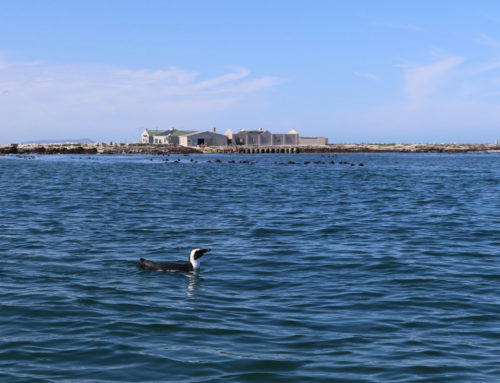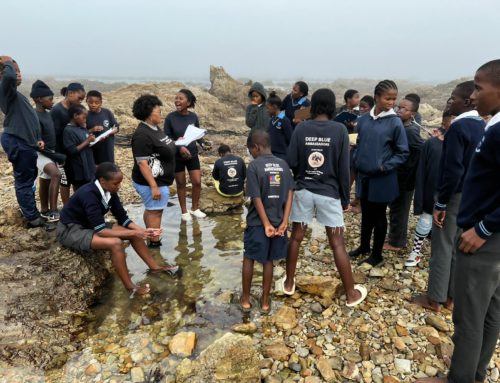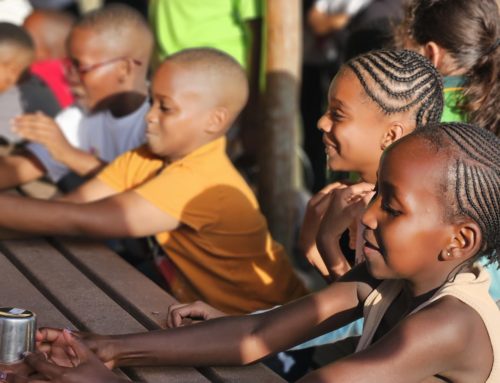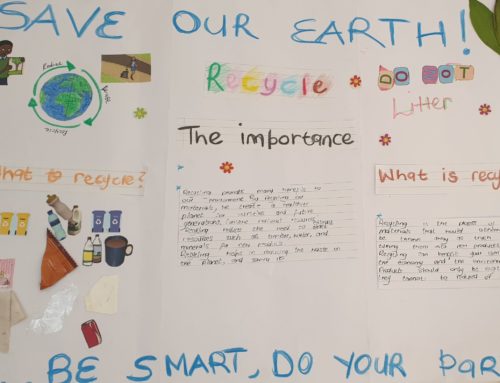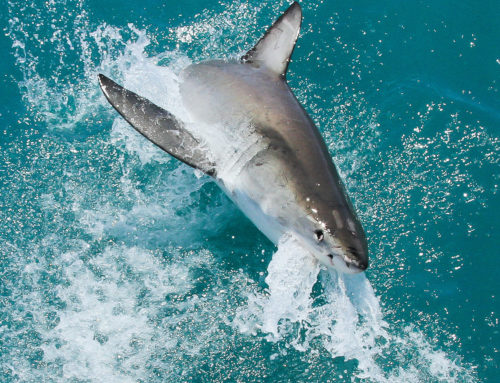The Dyer Island Conservation Trust was very fortunate to receive a call from South African surfer, Natasha van Greunen, to film at our African Penguin and Seabird Sanctuary, as part of her Shining Light Series. We invited her to also be our speaker at the monthly Marine Evenings at the Great White House Restaurant. Natasha shared her passion for ocean conservation and the environment with us. Here is her inspirational story.
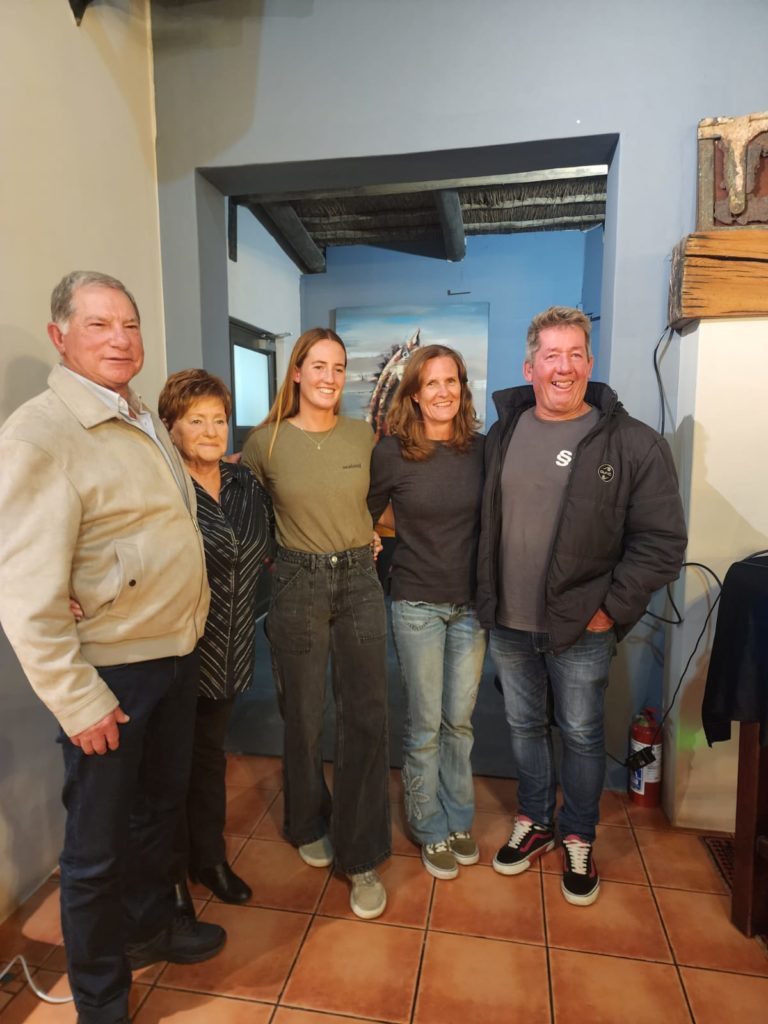
Natasha’s grandparents, locals Flippie and Lorraine as well as her proud mom and dad.
” I grew up visiting my grandparents, Lorraine and Philip Fourie, in Franskraal and this is where I developed
a connection with the ocean. Spending my days in or watching the ocean and its wildlife was fascinating
for me and it opened my eyes to what I truly value. It did not only solidify my passion for the ocean but it
inspired me to learn and understand more about the impact we as humans are having on it and the
changes we need to make to ensure a healthy planet, maintaining the habitats and livelihoods of the
creatures we share it with. I have completed a BSc Honors in STEM (science, technology, engineering
and math) focused on environmental science and renewable energy. I chose these subjects as I firmly
believe for a sustainable future, the answers to many of the environmental issues we face lies in
education, behavioural changes and enforcing big corporations to find alternatives to current destructive
methods.
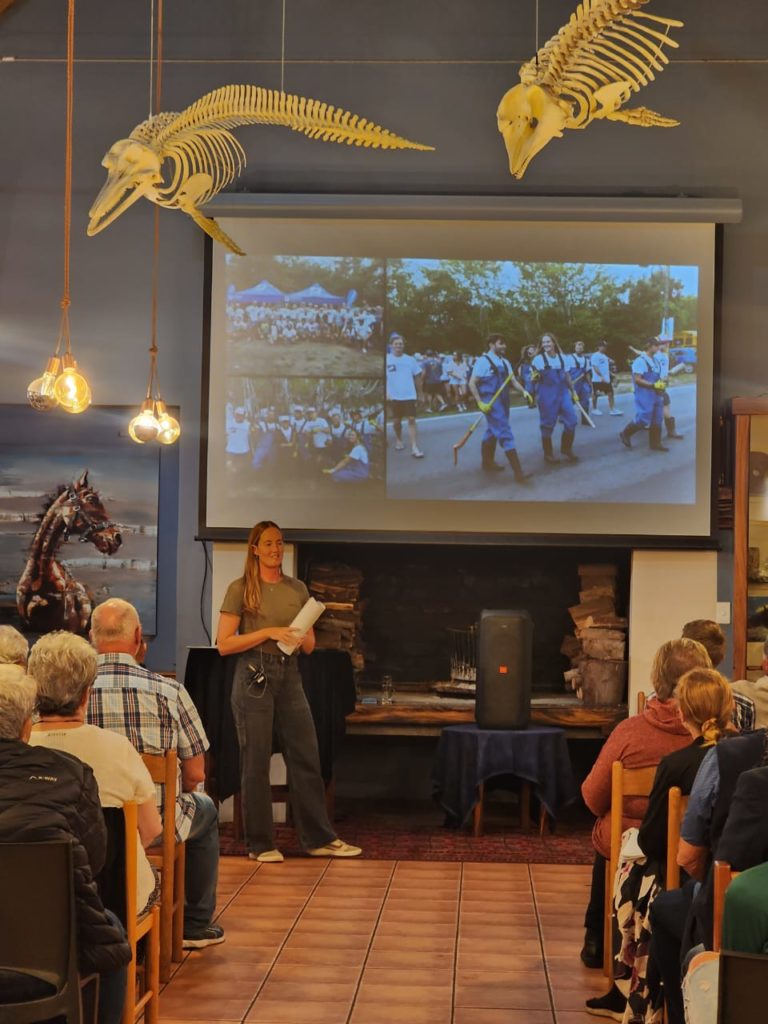
I am a professional surfer and I have represented South Africa at the International Surfing Associations’
World Surfing Games. I am also a member of the International Surfing Associations Athletes Commission.
Within the Athlete’s Commission one of my main goals is to improve the environmental sustainability of
competitions but also to ensure there are ways we as surfers are giving back to the ocean and its
communities at event locations, this involves encouraging the International Surfing Association to include
some form of initiative at events.
There is a quote by Baba Dioum: ‘In the end, we conserve only what we love; we will love only what we
understand and we will only understand what we are taught.’ This leads me to the point on how important
education is, especially when it comes to environmental conservation and protecting what this planet has
left. If more people are given the opportunity to learn about the importance of nature, ocean and
ecosystems and understand the importance of these, they will in the end protect it.
I started the Shining Light Series after acknowledging my lack of understanding and knowledge on the
relevant organisations which surrounded me on a daily basis. The Shining Light Series is a video series
which highlights the positive impact ocean- oriented organisations along South Africa’s coastline are
having on the ocean, its ecosystems, wildlife and communities.
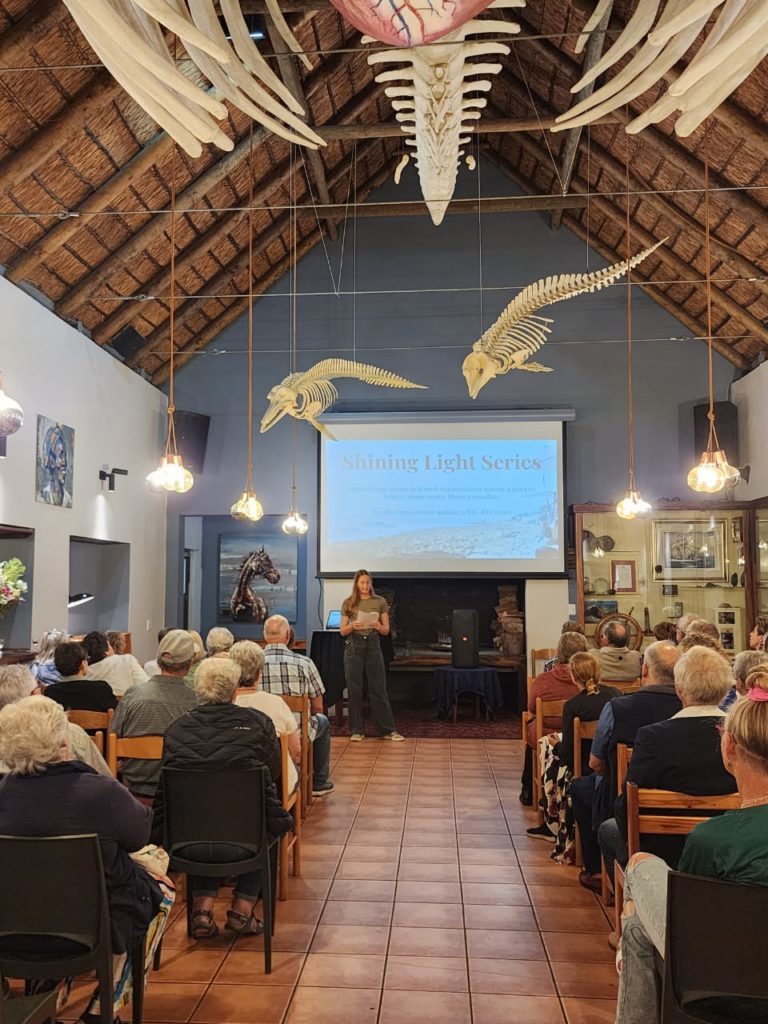
The first organisation I shared was the IAMWATER foundation which promotes ocean conservation
through transformative experiences for youth in under-resourced communities. How can we expect future
generations to protect the oceans if they have no connection with it? The ocean guardians’ workshops
educate and develop this connection with the ocean by getting the children to interact with ocean
ecosystems and environment. An environment which they were once detached from, and maybe a little
scared of, soon became one they were comfortable being in and could understand. In the end choosing to
protect the oceans, as the IAMWATER message says – ‘We protect what we love’.
The second organisation I discussed was the Strandloper Project run by Mark Dixon, which encourages
and fosters marine conservation through citizen science. They research threats to marine biodiversity by
encouraging beach goers and concerned citizens to gather information and knowledge on ghost fishing,
plastic pollution, biodiversity and marine mammals. Ghost fishing has been a relatively uncommon topic
when talking about ocean conservation until recent years. Ghost fishing refers to abandoned, discarded
and lost fishing gear, this can range from large trawl nets, longline mainlines and traps used by fisheries,
to lines, sinkers and hooks from recreational fishing. This fishing gear is often unseen but its effects are
becoming more prominent and recognized for their destructive impact worldwide. Being conscious of our
fishing practices and understanding the environment we fish in, can reduce the amount of ghost fishing
found on reefs from recreational fishing.
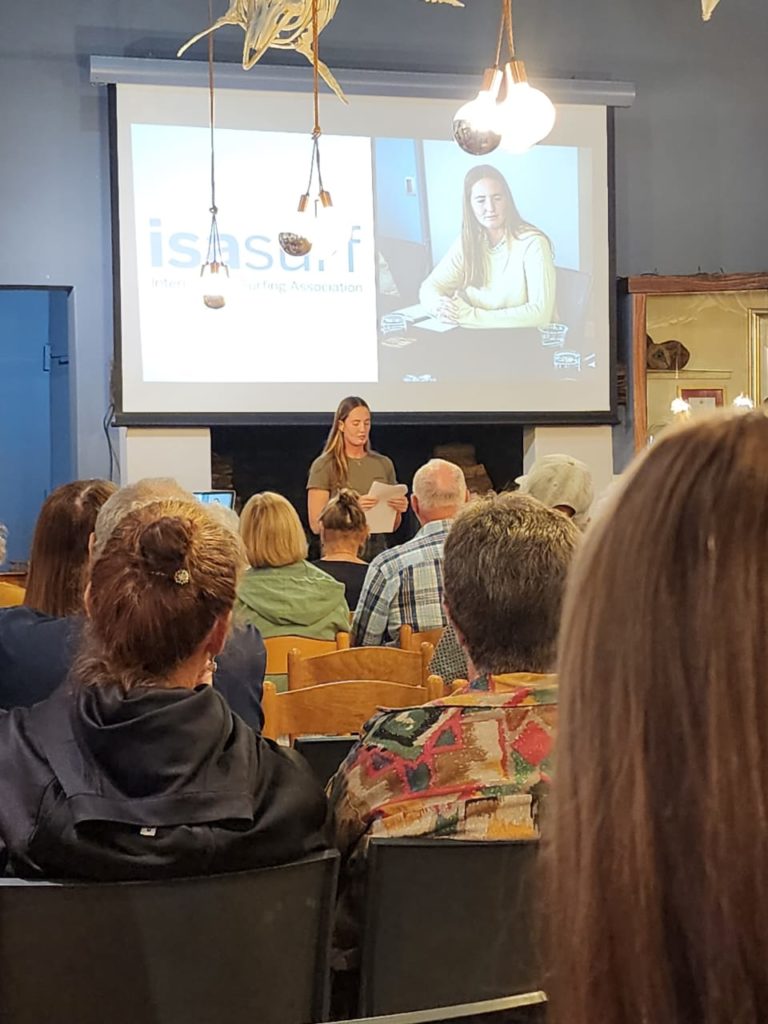
Moral of my story is: you don’t have to always be hands on in helping our oceans, or have a lot of money,
or create your own NGO. You just have to acknowledge what you love and care about, to find the small
ways where you can make changes, educate and encourage others to do the same.
I ended with a quote, which I think is one we all need to consider when we are tackling ocean
conservation: ‘Unless someone like you cares a whole awful lot, nothing is going to get better, its not’,
The Lorax by Dr Seuss
At the Marine Evening I met a restaurant full of people who care a whole awful lot, and the more we share
with our communities, educate and grow connections with the ocean, even more people will care a whole
awful lot.
I am looking forward to sharing the African penguin and Seabird Sanctuary in my next video series, this is
currently being edited and will be shared as soon as it is posted.
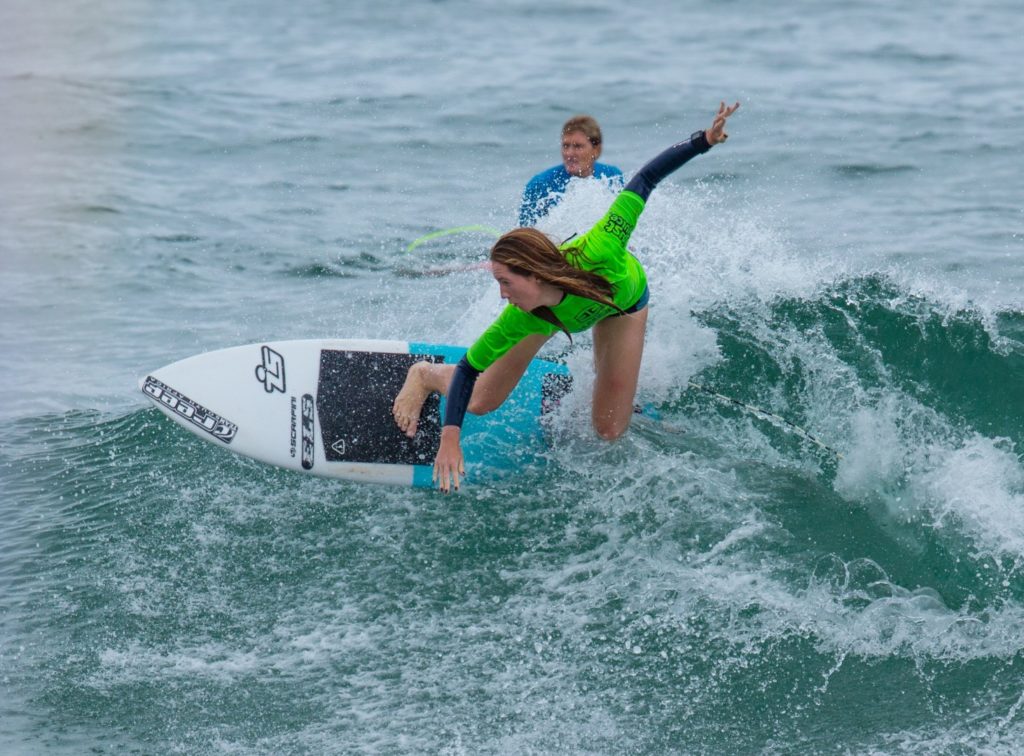
You can find these other organisations at their social media links @iamwater_foundation and
@thestrandloperproject
The videos are available @sealandgear and @tashvangreunen instagram and you can find the videos on
YouTube, Natasha van Greunen, Shining Light Series.”
Natasha van Greunen

